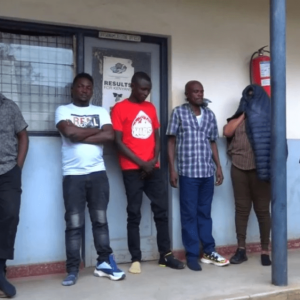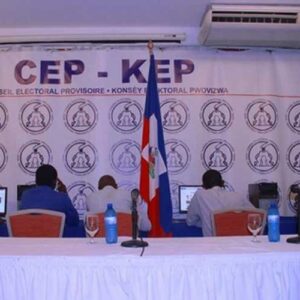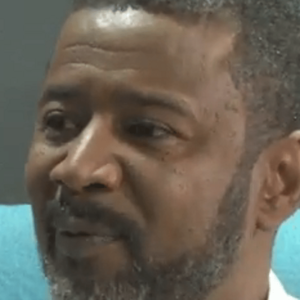By the Hemispheric Network for the Rights of Haitian Migrants (Redma)
Submitted to AlterPresse on May 24, 2024
Declaration of the Hemispheric Network for the Rights of Haitian Migrants
May 21, 2024
We are members of the Hemispheric Network for the Rights of Haitian Migrants (Hemispheric Network for Haitian Migrant Rights – Redma), a transnational coalition of Haitian migrant rights leaders and Haitian-led organizations fighting for the rights of Haitian refugees and migrants. We are present in 13 countries in the Western Hemisphere, including Haiti.
Today, violence in Haiti has intensified drastically, making the need for safe haven even more urgent. Despite widespread violence and increasing persecution in Haiti, countries across the hemisphere continue to reject and discriminate against Haitians who seek refuge in their territories. We demand that the rights of Haitian migrants and asylum seekers be respected by our neighbors in the region.
In recent years, violence and insecurity caused by armed groups have terrorized and displaced the Haitian population, both within the country and across borders. Violence intensified By the end of February 2024, armed groups targeted critical infrastructure, including airports, ports and police stations. At the end of March, around 2,500 people had been killed or injured by gang violence in 2024. Two months later, the violence persists. More than 360,000 people were displaced within the country. Emergency state was in place for more than two months. Schools, markets and hospitals closed their doors due to the violence. Kidnappings, murders with impunity and sexual violence permeate the daily lives of the Haitian population.
We are horrified to see that several countries, including the Dominican Republic, the United States, the Bahamas and the Turks and Caicos Islandscontinue the interceptions, repatriations and deportations of Haitians during this critical period, thus violating the obligations of non-refoulement. The deportation by the US government more than 50 people in Haitiby plane on Thursday, April 19, 2024, less than a week after the United States concluded their evacuation flights for their own citizens, while the Port-au-Prince international airport was closed, is astounding in its insensitivity, depravity and hypocrisy. The U.S. government sent Haitians into this level of danger, which it deemed unacceptable and untenable for its own citizens. Less than a month later, on May 16, 2024, the United States sent another deportation flight in Haiti. The Dominican Republic has “farm” its air and land borders with Haiti, but deportations continue unabated. These deportations, as well as the interception and repatriation of 65 Haitians by the United States on March 12, 2024, and repatriation boat of 263 Haitians through the Bahamas on March 20, 2024 (a measure taken due to the suspension of international air travel), show deep contempt for the lives and human rights of Haitians. They also violate legal obligations and international treaties.
Immigration authorities often violate the rights and dignity of Haitians during detention and deportation processes. As documented by many member organizations in our network, including the Support group for returnees and refugees (Garr)violations against Haitians in the Dominican Republic have become increasingly common and widespread. More than 250,000 Haitians have been deported from the Dominican Republic last year. Haitian women and children have repeatedly been victims of violations by authorities, including immigration authorities. For more than two years, the Dominican Republic has led immigration raids on maternity clinics and hospitals in order to target pregnant Haitian women, with a view to arresting and deporting them. In April 2024, a 14-year-old Haitian girl and her family reported to the police that she had been raped by a man, presenting himself as an immigration agent in the Dominican Republic. In September 2023, immigration officer arrested for raping Haitian woman in the presence of his four-year-old son at Las Américas international airport, in the capital of the Dominican Republic. These are not isolated incidents, but systemic dehumanization and abuse against the Haitian population by the Dominican government and immigration authorities.
We, the Hemispheric Network for the Rights of Haitian Migrants, formulate and amplify the following demands :
We join and amplify the recent open letter addressed to the government of the Dominican Republic launched by Amnesty International in collaboration with members of our network of Recognized et #HaitianosRDwhich describes human rights violations perpetrated against human rights activists, Haitians on the move, and Dominicans of Haitian descent. We join their call to end the government’s mass expulsions and de facto racist migration policies.
We denounce and condemn the advertisement of the American government, according to which he is ready to extend the use of Guantanamo in the event of an increase in attempts to reach the United States by boat from Haiti. Haitian Women for Haitian Refugeesone of our member organizations, which had several staff members who witnessed first-hand the horrors and human rights violations committed in the 1990s when Guantanamo was used to detain thousands of Haitians fleeing violence. The proposal to expand its use – again in response to fear of black bodies arriving on American shores – is an affront to the Haitian-American community and human rights advocates worldwide. Haitians trying to reach American shores by boat already face systematic discrimination due to the lack of linguistic interpretation. In a survey, carried out in 2023 on treatment of unaccompanied minors by the US Coast Guardseveral Coast Guard and immigration officials acknowledged that Haitians “were systematically disadvantaged in successfully applying for protection because almost no one working on Coast Guard boats speaks or understands Creole.”
We join and amplify the requests made by the member of our network, Haitian Bridge Alliancein letter sent to the United States government on March 26, 2024, calling for a redesignation of Temporary Protected Status (TPS) for Haitians, an immediate release of detained Haitians, and to expedite the processing of applications family reunification and conditional release for humanitarian reasons for Haitians. We call on all governments in the region to immediately expand opportunities for family reunification.
We call on governments in the Western Hemisphere to expand the legal protections their countries offer to Haitian nationals. There is an urgent need to expand asylum and refugee status, and extend protections against deportation and detention. ALL deportations and expulsions to Haiti must stop.
We call on all countries signatories to the Cartagena Declaration to recognize that Haitian nationals deserve the protections that the Declaration grants them.. We welcome and confirm the analysis and rapportrecently published by the Mexican human rights center, CDH Fray Matias and the Global Justice Clinic at New York University Law School, which show why Mexico must grant Haitians refugee status, under of the Cartagena Declaration to comply with its legal obligations.
We welcome the new guidance from the Office of the United Nations High Commissioner for Refugees (UNHCr) on international protection considerations for people fleeing Haiti and their recognition that several categories of Haitians are likely to qualify for asylum, under the 1951 Refugee Convention, as well as significant evidence of “generalized violence, “massive violations of human rights…and other circumstances which seriously disrupt public order” in Haiti – circumstances which qualify a person as a refugee, under the Cartagena Declaration. UNHCR also reiterated its November 2022 call to put an end to deportations and forced returns to Haiti. We believe it is essential to recognize that Haitians have fled the violence and deteriorating conditions described in UNHCR guidance for several years, and, regardless of the date of their departure, there is no no possibility of safe return at present.
We call on the United Nations Refugee Agency, UNHCR, and the International Organization for Migration (IOM) to accompany its recent statements, with increased material and legal support for Haitian refugees throughout the region. Haitian migration has transformed to span the entire hemisphere and requires hemispheric-wide solutions. A regional mechanism for Haitians, similar to the R4V platform coordinated by UNHCR and IOM for Venezuelans, should be put in place to begin to address the long-standing failure of insufficient protections and supports for Haitians in the region. A comprehensive needs analysis and coordinated funding mechanism for Haitian migrants, comparable to what R4V facilitated for Venezuelans, is long overdue.
We call on those who seek to show solidarity with Haitian migrants and Afro-descendants in general, to condemn the inaction of the governments of their countries and to demand reception and protection policies for Haitians. Haiti is often recognized and remembered as the ancestor of the freedoms of so many people – those of the African diaspora as well as many their people in Latin America. But let this memory not be the extent of our commitment. Our Haitian brothers and sisters need solidarity that goes beyond rhetoric – it must be accompanied by increased immigration protections. As Haitian migrants and asylum seekers have discovered at every turn, anti-blackness (and anti-Haitianism) knows no boundaries. Solidarity should not be affected either.
It is time to put an end to the discriminatory and racist treatment to which Haitian nationals have been subjected for a long time, and to treat them taking into account the fact that we are all people, seeking to survive for our own sake. children and for our loved ones. Haitian refugees must no longer be victims of violence and neglect.
The following members and member organizations of the Hemispheric Network for Haitian Migrant Rights (listed alphabetically, by last name and/or by organization):
Gabrielle Apollon, Global Justice Clinic, NYU School of Law* (United States)
Sharma Aurelien (Canada)
Ana Maria Belique, Recognized Movement (République Dominicaine)
Katia Bonte, Support Group for Returnees and Refugees (Garr) (Haiti)
Jean Wilnick Cadet, Social Union of Haitian Immigrants (Brazil)
Myrtha Désulmé, Haiti-Jamaica Society (Jamaica)
Marie Etienne, Haitian Association of Barbados (Barbados)
Rose Taïna Exant, Haitian Women for Haitian Refugees (United States)
Krystina François, City University of New York Graduate School and Baruch College, Department of Political Science (United States of America)
Investigative Conclave of Legal and Social Sciences Foundation (CIJYS) (Chili)
Haitian Women for Haitian Refugees (United States)
Louby Georges, The Flipside (Bahamas)
Aline Gue (United States)
Sam Guillaume, Support Group for Returnees and Refugees (Haiti)
Jackson Jean, Research and Extension Program on Afro-descendants and Afrodiasporic Studies (UNIAFRO/EIDAES/UNSAM) (Argentine)
Jean Eric Joseph, Association of Haitians in Lomba do Pinheiro (Brazil)
Roudy Joseph, #HaitianosRD (Dominican Republic)
Guerline Jozef, Haitian Bridge Alliance (United States)
Colette Lespinasse, Foyer Maurice Sixto (Haiti)
Victor Louidor, Fray Matias de Cordova Rights Center (Mexique)
Wooldy Louidor, Pontifical Javeriana University (Colombie)
Norveline Norvin, Association of Haitian Nationals in Guyana (Guyane)
Wendy Osirus, Advisor to Migrants and the Haitian Diaspora International (COMIDHI) (Dominican Republic)
Jean Claude Pierre-Paul, Creolophones (Canada)









